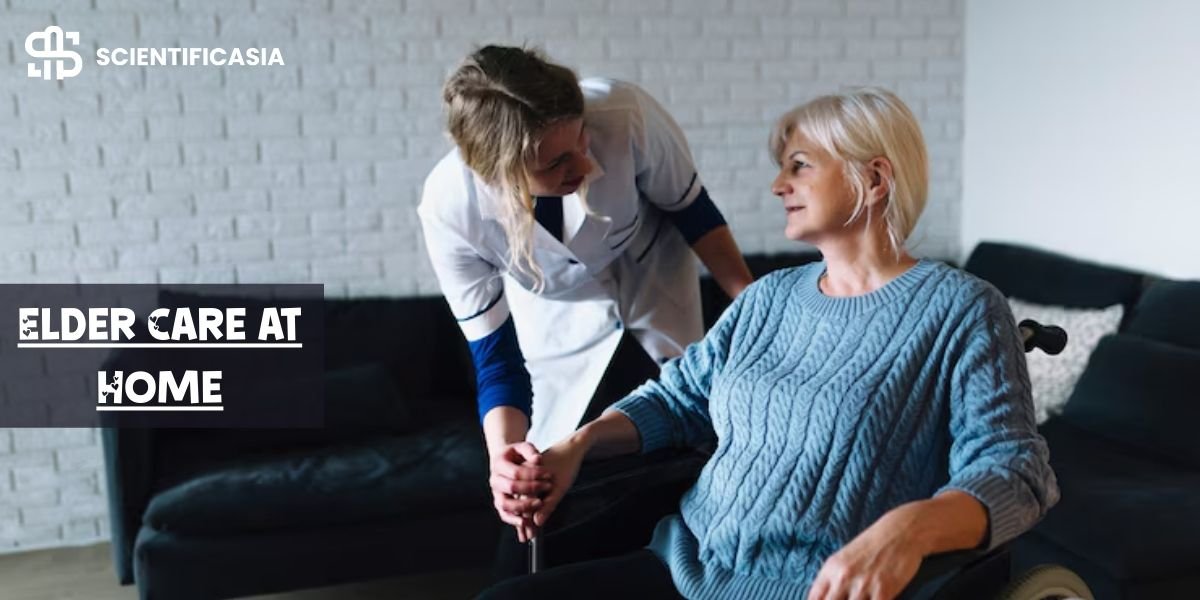Caring for an ageing parent or grandparent is a deeply emotional journey. As our loved ones grow older, their needs evolve. Some may require medical attention, while others simply need help with daily tasks or companionship. While nursing homes used to be the default option, many families today are choosing a more personal route: elder care at home.
Bringing care into the home is not just about convenience. It’s about respect, comfort, and ensuring dignity in the later years of life. Let’s take a closer look at how nursing at home can make a meaningful difference.
Why Home is the Best Place to Heal and Age Gracefully
Most older adults feel more secure in familiar surroundings. Their homes are full of memories, routines, and comfort, and moving away from that environment can feel overwhelming. With home-based elder care, seniors can continue living in a space they know and love while still receiving the care they need.
Staying at home also allows family members to be more involved. Loved ones can participate in the care process, offering emotional support and being present during important moments.
What Does Elder Care at Home Include?
The services offered under elder care at home can be tailored to suit the individual’s needs. Some seniors may require full-time assistance, while others might only need help a few hours a day. Here’s what home care typically includes:
- Personal care: Assistance with bathing, grooming, and hygiene
- Mobility support: Help with walking, moving from bed to chair, or preventing falls
- Medication management: Ensuring medicines are taken on time and as prescribed
- Medical care: Monitoring vitals, wound care, and support with chronic conditions
- Meal preparation and feeding support: Ensuring a balanced diet and regular meals
- Companionship: Emotional support, engaging in conversations, or simply being there
- Post-hospital care: Support during recovery after surgery or illness
This care can be provided by trained caregivers, nurses, or a combination of both, depending on the level of support needed.
Benefits That Go Beyond Just Healthcare
When you think of nursing at home, it’s easy to focus only on the medical aspects. But there’s much more to it.
One of the most essential benefits is emotional well-being. Seniors who receive care at home often feel more in control of their lives. They’re less likely to feel isolated or helpless, especially when surrounded by familiar people and routines.
Families also experience relief. Instead of worrying about hospital visits or coordinating between multiple care providers, they know that professional help is available where it matters most. It brings peace of mind to everyone involved.
Home care can also be more cost-effective in the long run, particularly when compared to full-time residential care or frequent hospital stays.
Choosing the Right Kind of Support
Every senior is different, and their care plan should reflect that. Start by assessing the level of care required. Is it medical support? Help with daily activities? Or just someone to spend time with during the day?
Once you understand the need, look for service providers who offer flexible plans. Ideally, the caregiver or nurse should be trained, experienced, and, most importantly, compassionate. Communication skills and patience are just as essential as technical knowledge.
Some families prefer the continuity of having the same caregiver, which helps build trust and familiarity. It’s always good to discuss this upfront when exploring options.
When Is It Time to Consider Elder Care at Home?
It’s not always easy to decide when to bring in external help. Some signs that it may be time include:
Difficulty with basic tasks like bathing, eating, or moving around
- Forgetfulness that puts health or safety at risk
- Recovery after surgery or hospitalisation
- Signs of depression, loneliness, or lack of interest in daily life
- Family caregivers feel burnt out or overwhelmed
Recognising these signs early can prevent complications and ensure a better quality of life for your loved one.
A Thoughtful Step Forward
As our elders age, what they truly need is care rooted in love, patience, and dignity. Elder care at home offers precisely that. It allows seniors to remain close to their families, surrounded by the things and people they love, while still receiving expert attention.
If you’ve been searching for ways to support an aging parent or relative, exploring options for nursing at home might just be the thoughtful step you need to take. It’s not just healthcare. It’s about creating a nurturing space for someone who’s given so much to others all their life.














